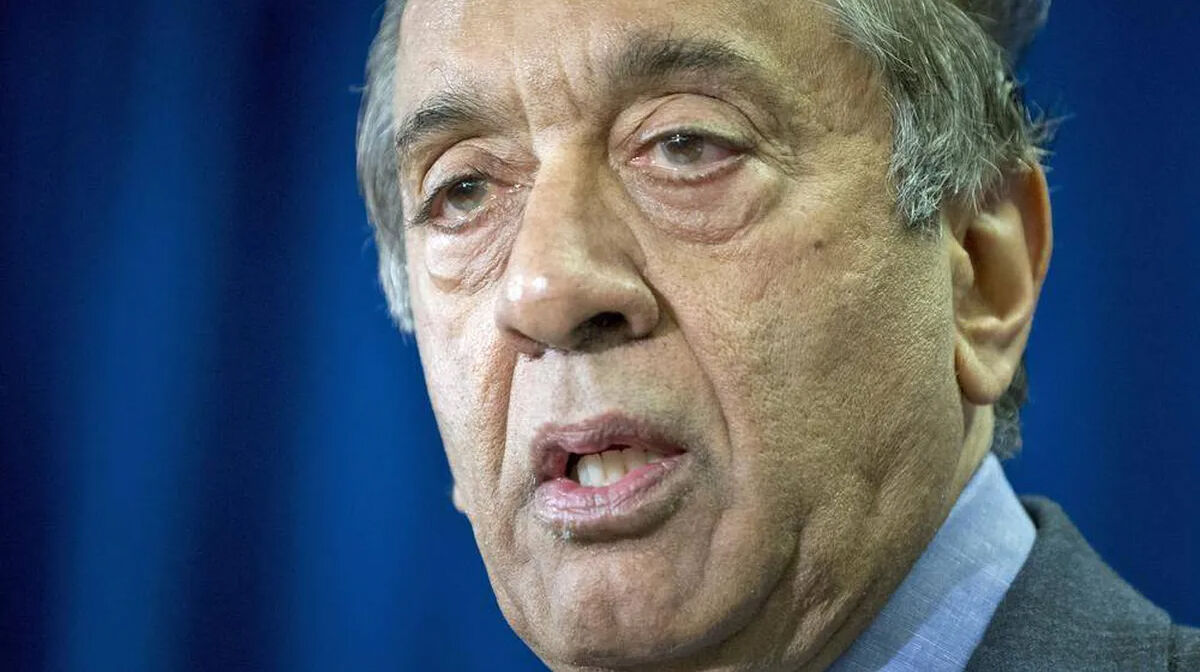As seen in The Globe and Mail by Ian Bailey and Sunny Dhillon, 19th December 2012
Financial aid could help avoid history repeating itself, but Oppal concedes it’s a
complicated issue

John Lehmann/The Globe and Mail
The head of B.C.’s Missing Women Commission of Inquiry says the children of missing and murdered women deserve financial compensation from the government, but concedes there are complicated questions to resolve.
Inquiry commissioner Wally Oppal dealt briefly with the issue when he released his 1,448-page report this week, but elaborated on his views on Wednesday in an interview.
“The thinking was that these young people needed some kind of compensation in order to put them on a footing where they would have been had it not been for the wrongful deaths of their parents. The other thing is, we don’t want them to suffer the circumstances [of their parents] – in other words, they end up on the streets, and then they become marginalized and vulnerable,” he said.
Asked about how the provincial government should deal with children who accept compensation and then sue the police or other parties, Mr. Oppal said there are no obvious answers.
“The general rule is you can’t collect twice for the same incident. That’s generally what the rule of law is. That would be up to the government to decide how they want to approach that. If there is compensation from one source, government may well decide they would not want to pay.”
Mr. Oppal acknowledged that the province has already provided some compensation to families, but said his proposal is aimed at helping children “further their career enhancement and matters of that sort.”
On Wednesday, the B.C. Ministry of Justice and the Attorney-General said that the government has paid $1.44-million in crime-victim assistance benefits to the families of missing and murdered women in the case of Robert Pickton, who was convicted in 2007 in the deaths of six women and sentenced to life imprisonment. The remains of 33 women were found on his farm. During Mr. Pickton’s criminal trial, $124,000 was paid to families for travel costs. Travel funding of $186,000 was paid to families during Mr. Oppal’s inquiry.
Lilliane Beaudoin, the sister of victim Dianne Rock, told The Globe and Mail last year that Ms. Rock’s five children received payments of between $5,000 and $7,000. Ms. Rock’s mother, sisters, and brothers also received compensation, Ms. Beaudoin said at the time.
Mr. Oppal said he embraced the principle of compensation, including a “healing fund” for families, but is leaving it to the government to work through the details.
In a statement on Wednesday, Attorney-General Shirley Bond said she was mindful of compensation issues. “We know the importance of providing support to people who have lost loved ones to crime, especially under these tragic circumstances,” she said, adding her ministry is reviewing Mr. Oppal’s report to consider its response to the 63 recommendations.
Neil Chantler, one of the lawyers who represented the victims’ relatives at the inquiry, said he was pleasantly surprised his recommendation for a fund made it into the final report. “Frankly, we thought it was a long shot.”
Mr. Chantler said he hasn’t had an opportunity to contemplate just how it would work.
He acknowledged that some victims’ relatives received compensation around the time of Mr. Pickton’s trial. He said the amounts were in the range of $5,000 to $10,000 a person, and select family members received them.
He declined to comment when asked if the families could still pursue a class-action lawsuit.
Ernie Crey, whose sister Dawn’s DNA was found on Mr. Pickton’s farm, said a compensation fund for the children is an excellent idea. “Compensation of this nature could enhance existing assistance programs for victims of violent crime. And such assistance would constitute a direct and meaningful acknowledgment of the unique status of the children of the missing and murdered women,” he wrote in an e-mail.
Mr. Oppal said he is satisfied with his own compensation for the inquiry. According to the Attorney-General’s ministry, he was paid $1,500 a day. Thomas Braidwood and William Davies were paid $1,750 a day for their inquiries on Taser use and the death of a homeless man, according to the ministry.
“It’s fair and I agreed to it,” Mr. Oppal said of his salary. “I can tell you, I worked very, very hard. I was here most Saturdays and most Sundays throughout the last two years.”
Oppal plays down interruptions
Mr. Oppal is shrugging off the chaotic interruptions that marked the news conference where this week he unveiled his report for the Missing Women Commission of Inquiry. The former court justice and attorney-general was heckled, drowned out by chants and I drumming and peppered with questions from angry spectators as he tried to sum up his work.
Mr. Oppal said he thought some of the questions “unfair,” and others “aggressive and argumentative,” but he handled the situation as best he could. He did not get angry, sarcastic or otherwise lash out, but simply accepted the abuse in one of the more remarkable releases of such a report recently in B.C.
“If someone lost a loved one, I understand their frustration and anger. In those circumstances, you may not always get the respect that you want,” he said in an interview on Wednesday. “I knew it would not be easy. I didn’t think it was going to be quite like that, but I have patience for a lot of those people.”
He said the only barb that stuck was the suggestion he kept people out of the process. “Whatever else I was, I was inclusive,” he said.

 ‘In Their Name’ is the campaign of ‘The BC Wrongful Death Law Reform Society’ – a BC registered non-profit organization comprised of volunteer families who have lost a loved one to wrongful death in BC and were denied access to justice. In response to the biggest human rights issue facing the province today, our goal is to modernize British Columbia’s antiquated wrongful death legislation, which predates confederation (1846). Under current legislation, the value of a human life is measured only by the deceased’s future lost income, so long as they had dependents.
‘In Their Name’ is the campaign of ‘The BC Wrongful Death Law Reform Society’ – a BC registered non-profit organization comprised of volunteer families who have lost a loved one to wrongful death in BC and were denied access to justice. In response to the biggest human rights issue facing the province today, our goal is to modernize British Columbia’s antiquated wrongful death legislation, which predates confederation (1846). Under current legislation, the value of a human life is measured only by the deceased’s future lost income, so long as they had dependents.